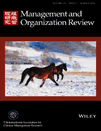 A suggestion: If you’re going to use the words “overestimated accuracy” in the title of your paper, you’d better make sure you aren’t guilty of the same yourself.
A suggestion: If you’re going to use the words “overestimated accuracy” in the title of your paper, you’d better make sure you aren’t guilty of the same yourself.
A group of authors in China has lost their June 2013 paper in the European Biophysics Journal because they appear to have misinterpreted their data. The paper, “Overestimated accuracy of circular dichroism in determining protein secondary structure,” came from chemists at Fudan University in Shanghai, and purported to find that:
Continue reading “Unable to dispel the doubts,” authors lose protein structure paper








